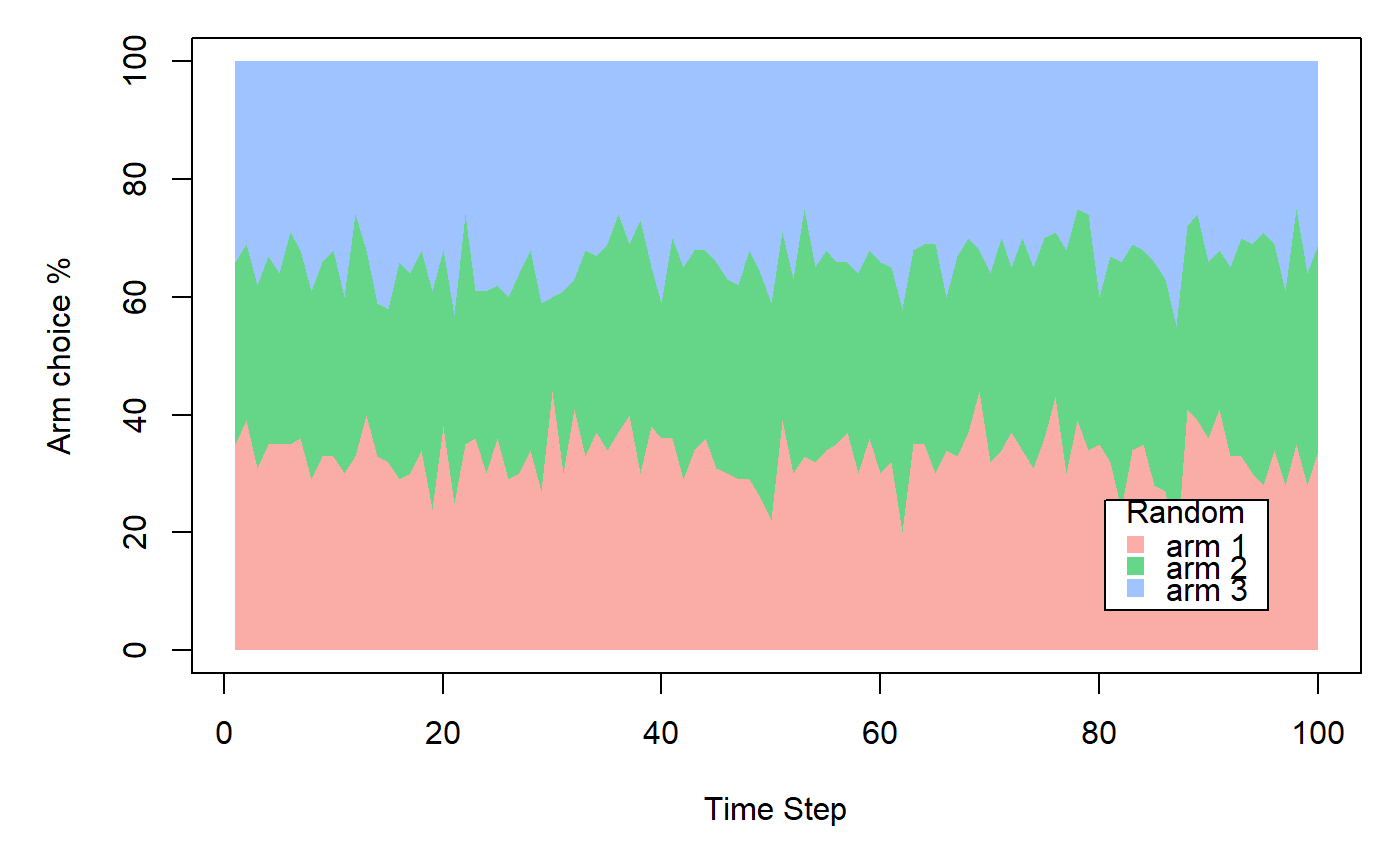RandomPolicy always explores, choosing arms uniformly at random.
In that respect, RandomPolicy is the mirror image of a pure greedy policy,
which would always seek to exploit.
Usage
policy <- RandomPolicy(name = "RandomPolicy")
Arguments
namecharacter string specifying this policy. name
is, among others, saved to the History log and displayed in summaries and plots.
Methods
new()Generates a new RandomPolicy object. Arguments are defined in the Argument
section above.
set_parameters()each policy needs to assign the parameters it wants to keep track of
to list self$theta_to_arms that has to be defined in set_parameters()'s body.
The parameters defined here can later be accessed by arm index in the following way:
theta[[index_of_arm]]$parameter_name
get_action(context)here, a policy decides which arm to choose, based on the current values of its parameters and, potentially, the current context.
set_reward(reward, context)in set_reward(reward, context), a policy updates its parameter values
based on the reward received, and, potentially, the current context.
References
Gittins, J., Glazebrook, K., & Weber, R. (2011). Multi-armed bandit allocation indices. John Wiley & Sons. (Original work published 1989)
See also
Core contextual classes: Bandit, Policy, Simulator,
Agent, History, Plot
Bandit subclass examples: BasicBernoulliBandit, ContextualLogitBandit,
OfflineReplayEvaluatorBandit
Policy subclass examples: EpsilonGreedyPolicy, ContextualLinTSPolicy
Examples
horizon <- 100L simulations <- 100L weights <- c(0.9, 0.1, 0.1) policy <- RandomPolicy$new() bandit <- BasicBernoulliBandit$new(weights = weights) agent <- Agent$new(policy, bandit) history <- Simulator$new(agent, horizon, simulations, do_parallel = FALSE)$run()#>#>#>#>#>#>#>
